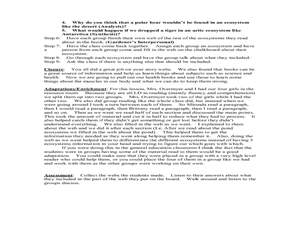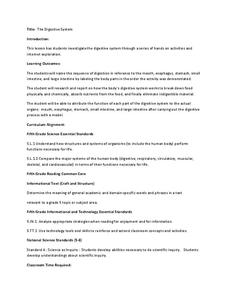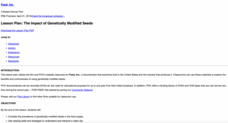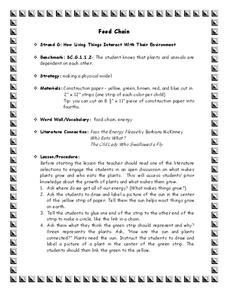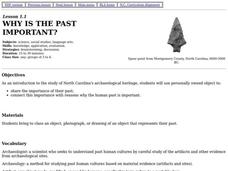Lee & Low Books
First Come the Zebra Teacher’s Guide
Accompany a reading of First Come the Zebra written and illustrated by Lynne Barasch with a teacher's guide equipped with before reading, vocabulary, and after reading activities. Additional social studies, science, music, art, math, and...
K20 LEARN
No Imitations, Please! Avoiding Plagiarism
With all the stuff available online, good essays are just a click away. But talk about tracking! Writers beware! New tech can now identify plagiarism, and the consequences of presenting someone else's work as your own are severe. Here's...
Curated OER
Critical Thinking Strategies
Students explore critical thinking strategies. For this critical thinking lesson, students evaluate multiple choice answers. Students note similarities between incorrect answers and discover how to compare and contrast incorrect and...
Columbus City Schools
Asexual and Sexual Reproduction
Can you name a type of reproduction that produces no variation in the offspring? The multimedia lesson covers both sexual and asexual reproduction through videos and discussions. It includes topics such as genetic modification, meiosis,...
Curated OER
Graphic Organizers Aid Comprehension
Students create story webs to aid comprehension of ecosystems. In this reading strategies lesson, students discover the importance of organizing information while reading a nonfiction text. Students produce story webs to communicate...
Curated OER
Rachel's Life is in a Hole
Explore how lack of access to water impacts peoples' lives in poor countries. Through text reading and discussion, middle schoolers are presented with the story of a young girl who lives and functions with limited water resources. They...
Curated OER
Cloudy With A Chance of Meatballs
Second graders explore weather. In this weather lesson, 2nd graders read Cloudy With A Chance of Meatballs and participate in four supplemental science activities. Students participate in Internet research, create weather maps,...
Virginia Department of Education
Weather Patterns and Seasonal Changes
Get your class outside to observe their surroundings with a activity highlighting weather patterns and seasonal changes. First, learners take a weather walk to survey how the weather affects animals, people, plants, and trees during...
Curated OER
The Digestive System
Discover how the human body's digestive system works with a brain and stomach friendly activity. Scholars taste test a variety of foods to find out how they behave once in the mouth. Class members then play a game called Move That...
Curated OER
Little Me in a Big World: Ants
Pupils use the life cycle of an ant to learn about their own self-esteem. In this self-esteem lesson plan, students read books about ants and discuss obstacles from the stories as well as the ant behavior.
PBS
The Impact of Genetically Modified Seeds
What is all the fuss about genetically modified foods? PBS provides this resource designed to supplement the documentary Food, Inc. to help learners investigate the benefits and controversies of genetically modified foods for individuals...
Curated OER
Food Chain
Students discuss what makes plants grow and who eats the plants. They are asked where do we get all of our energy? Students are asked to draw and label a picture of the sun in the center of the yellow strip of paper. They are explained...
Curated OER
Why is the Past Important?
Fourth graders discuss the importance of North Carolina's archaeological heritage. They share with the class an object, photograph, or drawing of an object that represents their own or their family's past.






